So I’m shaking up my planned timetable for the science fiction reviews. I thought it made sense to start with the Silent Sea but a recent discussion about terrible dramas made me realise we need an Alice review out in the universe. So here it is. My first Korean scifi review.
One of the worst television shows ever made.
Alice.
It was in 2020 that the groundbreaking time travel show, Dark, ended with a bang. A big bang even. Made in Germany and streamed on Netflix all over the world, the show was a seminal force in modern science fiction television. Unfortunately, like most works of genius, there have been several attempts to capitalise on its popularity. As you can imagine, most of these attempts have been woeful.
Korea, for some reason, decided to wade in as well. And thus Alice was born.
Alice is what happens when writers with little skill look at the performance of a virtuoso and think they can recreate their masterpiece by using the components of their work. Like some kind of televisual tetris or possibly Lego set. A piece of time travel here, a bit of incest there, an interlocking piece of destiny and a capper of romance. Thus Alice was born. Cannibalised from the decontextualised pieces of somebody’s else’s Opus.
The problem is that Dark wasn’t a selection of elements that can be pulled out and reassembled. It was a cohesive work of art. By grabbing random Darkish pieces and slapping them together in a multicoloured puzzle, all you’re really doing is showing that you didn’t understand Dark. And that’s what Alice is. A long-form essay on how its screenwriter and PD didn’t understand another piece of work.
Oh and it’s also an incest romcom.
Just to get that out there early.

A Korean Dark
By writing this piece I’m definitely going to have spoilers for Alice. But I will also have spoilers for Dark. So if you haven’t seen Dark then… well, what are you doing here? Go watch Dark! This piece will have spoilers for Dark.
So, you’re a writer. And you’ve been either inspired to or been asked (forced?) to create a Korean version of the hugely popular existential masterpiece that was a German time travel show. It was complex, it was deeply metaphorical, it drew on everything from Greek mythology to fairy tales to existential philosophy. It was disturbing and challenging and atmospheric and, well, dark. So what would a Korean version look like?
Well, for a start, we can’t have this awful tragic ending. None of this ‘sacrificing ourselves for the good of humanity’ nonsense. No! This is a Kdrama. It has to have a happy ending. Our male lead must survive and thrive and get the girl. The girl is his mother but that Dark show told us incest was okay!
(As an aside, the incest in Dark was always and forever an utter tragedy. A symbol of social collapse, of a spiralling into chaos. I still remember when Jonas found out that, because of time travel, the woman he loved was actually his Aunt. It was a moment of true devastation. And the terrible offspring of that union was both the beginning and end of the show’s destructive time loop. Nobody, but nobody, could have watched Dark and decided that incest was romantic).
But, back to Alice.
Alice is what happens when somebody decides that what distinguishes Korean dramas from other forms of storytelling is bad romance tropes and glib happy endings. And then is asked to adapt the televisual equivalent of a Greek tragedy written by the Brothers Grimm (but what if, what if, what if there were no consequences to anything and Jonas and Martha got to live happily ever after?! Genius!)
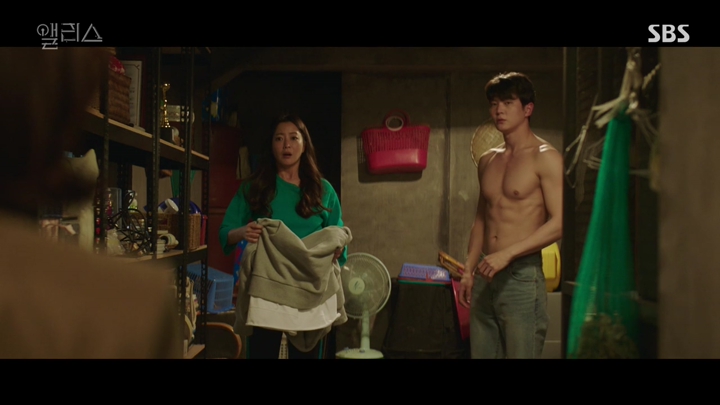
The plot. Of Alice (this is a review of Alice)
On paper, the plot of Alice is quite complex. But don’t let its complexity fool you into thinking it’s actually about anything. It’s not.
Or to be fairer to the show, in parts it actually is. Those parts are interesting and if another writer wanted to pick up those parts and do justice to them, it would definitely be worth watching.
Plot 1
In 2050, an organisation called Alice sends people back in time to help them resolve their emotional traumas – for money of course. If you centre the narrative from a 2050 perspective then this story at least is quite interesting and has the potential for a lot of emotion.
People pay Alice to travel back to a certain point in time and see loved ones again, get revenge, or just correct their mistakes.
The show ostensibly uses a multiverse theory of time travel but, as a technician, the writer only has a clumsy idea of how this works. (But more on this later, I don’t want to get bogged down in time travel mechanics at this point.)
The plot involving Alice and its workaday time travel employees who bring people back and forward on journeys of personal fulfilment and trauma resolution is a narrative goldmine for human stories. And if this was what Alice was about then you would have been reading a very different review. But it’s not. So here we are.
Plot 2
We’re time travelers. In 2050, Alice finally succeeded in traveling through time. At the thought that we can meet our dead loved ones, and the thought that we could live a new life by going back in time, people became overjoyed. And so, time became fluid, and so did the world, and people’s lives became that much richer.
That is, until the book was discovered. The rumors say that the book contains a tragic ending to the time traveling that has just started. People called the book “The Book of Prophecy.” I must find the book in order to keep time travel going. And that is why I’ve arrived in 1992 today… to find the book.
Opening monologue to Alice, which is misleading about almost everything
In 2050, Alice agent Yoon Tae-yi (Kim Hee Sun) comes back in time to 1992 with partner and lover Yoo Min-hyuk (Kwak Shi-yang) to find a book of prophecy that predicts the end of time travel.
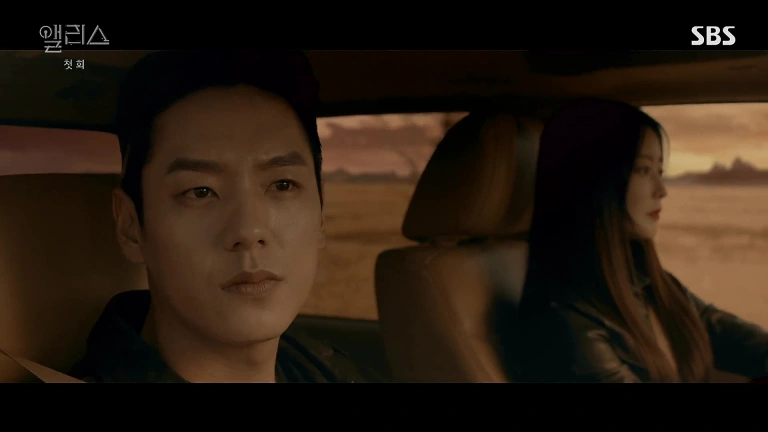
Travelling through the wormhole exposes them to a great deal of radiation so when Tae-yi realises she is pregnant and that a return trip will kill the foetus she runs away from Alice and stays in 1992. There she raises her super special snowflake son, Park Jin-gyum (Joo Won) who has emotional problems from the in-utero time travel but also special powers, such as the ability to stop time.
When his mother is murdered, Jin-gyum becomes a cop to find out who did it. One day his investigation leads him to the Yoon Tae-yi of this reality: a physics professor specializing in quantum and temporal mechanics. Together they try to solve the various mysteries of time travel and Alice.
And have the grossest cohabitation romance in history.
Which brings us to…
The incest
SHE’S HIS MOTHER.
Just to get this out of the way upfront. It doesn’t matter if she technically gave birth to him or not. She’s his mother. She looks like his mother, she has his mother’s DNA, she is his mother. It’s not like he never knew his mother. He was raised by his mother.
Or if you want to buy into the semantics the writers seem to be pushing here, think of it like this:
Your mother has an identical twin sister. They’re genetically indistinguishable but her twin didn’t technically give birth to you. Therefore, she’s not your mother (um, she’s your Aunt) and a romance is completely fine (it’s not completely fine) because it’s somehow not incest (it’s incest).
What the show’s serving up here isn’t even unintentional incest. He knows this woman is his mother from a parallel reality. The only difference between this Yoon Tae-yi and the one we met in the beginning of the show is that she hasn’t invented time travel in this reality – yet and she hasn’t gotten pregnant with him – yet. She’s still a professor of quantum and temporal mechanics, she’s still researching time travel. Because she is the same person.
The most annoying thing about Alice is that the emotional resonance over the male lead encountering his mother again is powerful. As mentioned briefly above, Jin-gyum has serious emotional problems from his in-utero exposure to the radiation of the time vortex. This means he’s unable to process or express emotion or to understand the emotions of others. His mother devoted her life to helping him to learn empathy intellectually so that he could function as a normal human being.
Her murder is therefore utterly devastating for him, even more than for the average person. His mother was the only one he had any semblance of emotion for due to his brain damage and her death affected him more deeply then he’s capable of expressing. And suddenly this doppelganger is before him dredging up all that inadequately processed grief, loss and guilt.
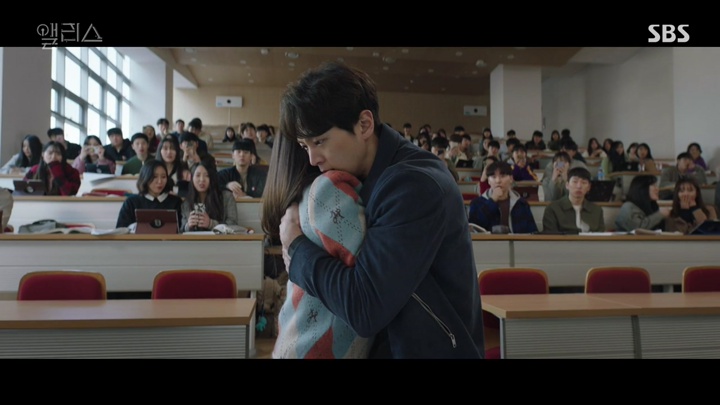
Instead of capitalising on this powerful and extremely human emotional core to their drama, what does the show do with this disquieting and potentially cathartic moment between a man and the doppelganger of his dead mother?
It turns it into an inexplicable, utterly gross cohabitation romcom. Sure, he knows this woman is his mother from this timeline but the show still devotes episode after episode to the romcom version of incest. She walks in on him topless! She treats his wounds! She gets stuck in a store room with him and accidentally removes his shirt!
All of this is of course misunderstand by the obligatory psycho second female lead (who is of course secretly in love with him because this is a Kdrama and we can’t get rid of this character no matter how much we beg). She knows this woman looks exactly like his mother but still freaks out over him spending time with her. Not despite her looking like his mother. Because of her looking like his mother.
The implication here is that Jin-gyum was so weirdly sexually obsessed with his own mother that when his best friend sees a woman who looks exactly like her she sees her as a romantic threat.
It’s weird, it’s creepy, it’s gross. I have insufficient synonyms to express its awful.
As the show unfolded and the romcom elements seemed to be in our rear view, I could have possibly pretended it didn’t happen. I could have pretended it didn’t happen at least if the show didn’t twist itself into a pretzel to give us some kind of unearned happy ending involving these two characters reconnecting and presumably ending up together.
So either they deeply misunderstood Dark’s underpinning Aunt/Nephew romance or they simply didn’t care as long as they could tick the ‘incest’ box on their DIY Dark assembly kit.
For this alone, Alice should never have been made.
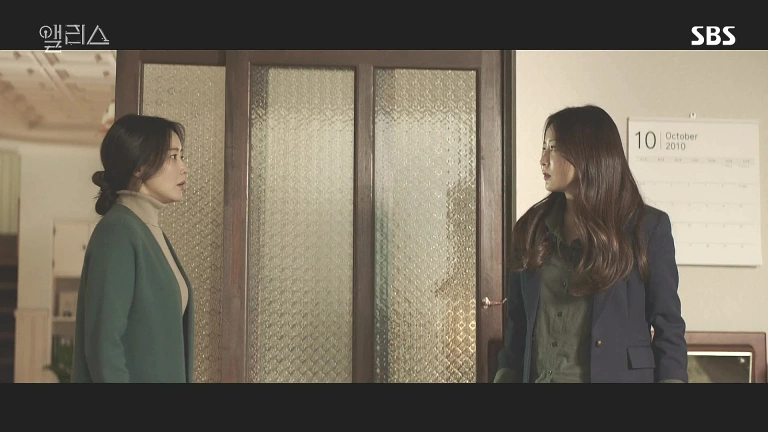
Who is Alice? And why this question matters
Since this show is called Alice, you’d be forgiving for thinking that you’d come out of it knowing who Alice is. It is, after all, a show that is supposed to be about Alice, the prophecy is about Alice and it’s hidden in a copy of Alice in Wonderland.
So who is Alice?
Alice is the name of an organisation based in 2050 that sends people back in time to help them resolve their emotional traumas. Is that the Alice the show refers to that is mentioned in the prophecy?
The male lead’s mother, Yoon Tae-yi is the one who actually invented time travel (woman is actually a scientific badass, something the show consistently forgets). So is she Alice? Is Jin-gyum Alice?
Tae-yi may have invented time travel but she merely works for Alice. So who set up Alice? Where did it come from? Where is it? Who runs it? Our glimpses of Alice imply it exists outside of spacetime in some way but how this is possible or where Alice is located is never explained.
None of these questions are answered. And since this show becomes about destroying Alice as some kind of proxy for destroying time travel then this matters. It matters a lot.
We find out early that there are other players in time travel. Rebels who let people travel outside of the network set up by Alice. A mysterious figure who seems to be trying to kill our male lead and his mother-girlfriend. (Oh at one point we discover that his mother was planning to adopt her alt-universe version and raise her as her own, which makes her also his adopted older sister – Yay for incest!).
Either way, more people than Alice are using time travel. So does destroying Alice destroy time travel completely? As far as I can tell, no. If Alice had a monopoly on time travel, then where do the rebels come from? Yet we’re told that destroying time travel is what needs to happen.
The show sets up a tension around our male lead and his super special snowflake magic time powers and his own evil doppelganger. The Dark allusions are obvious and so the inevitable conclusion is that the ending will involve Jin-gyum destroying himself to save time or to stop time travel or something (this was unclear generally).
But Jin-gyum had no role either in the creation of the technology or the establishment of Alice. He is instead a product of time travel. So while he or his Dark Half may be threatening the multiverse in some way (even this is not made entirely clear), this has little to do with the existence of time travel itself.
As a consequence, we never find out who Alice is supposed to be, textually speaking. Which is kind of important.
In a show called Alice.
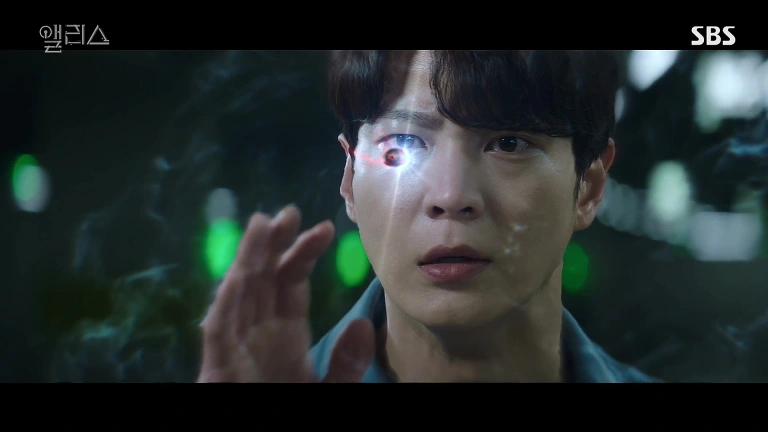
The female characters
Not to put too fine a point on it, but Alice has a woman problem. A serious one.
Above I mentioned the second female lead. She’s one of only four – count them four – female characters in the entire show.
We have the male lead’s birth mother, his alt-universe mother, the aforementioned best friend who’s always liked him and an agent in 2050 who’s in love with his father (who is, of course, still working for Alice).
Written out like that, you can sense a theme here. Every single one of these female characters is defined solely by her relationship to a man. Mother, lover, spurned psycho. The writer can conceive of no other role for a woman: no aspirations, no second dimension, no real depth or character. She’s either trying to get a man, in a relationship with a man or taking care of her male child in a way that’s utterly self-sacrificing. This show could have been written by Moffatt, it is that rife with embedded misogynism.
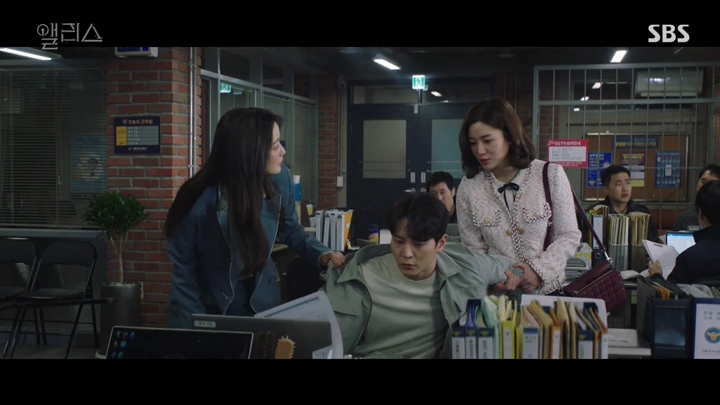
You’re probably thinking, “But LT, his mother was a time agent who invented time travel!”
And this would be a valid counterpoint except that the show frames her invention of time travel as a kind of birth. Yoon Tae-yi’s great scientific achievements become an almost-offensive allegory for pregnancy. The woman invented fracking time travel but it’s still used as a metaphor for life coming out of her womb.
Tae-yi’s decision not to have an abortion and to give birth to Jin-gyum becomes textually associated with her decision to invent time travel and to act for its preservation. Time travel is a life she gave birth to and as its mother she could not possibly kill it any more than she could harm Jin-gyum At this point, the whole thing starts to come off as some kind of anti-abortion screed (how could she kill the life from her womb!).
It’s deeply misogynistic and it also makes no sense. Her invention of time travel is not predicated on the birth of her son in any way so the fate of Jin-gyum and the fate of time travel are not in any way linked. So as well as being offensive it also doesn’t make any sense.
Also the woman invented fracking time travel! It came from her mind, not her womb. Give her some damn credit.
The time travel
Ostensibly the show is based on the multiverse theory of time travel and, to be fair, at various points I did start to wonder if the writer was somehow going to bring this all together. But as it headed into its final week, I realised the whole thing was just a pile of meaningless nonsense and the ending reflected that.
Still it’s worth taking some time to discuss why and how she got it so wrong and why it’s an issue.
Think of your reality as a tree.
If I go back in time three years and buy Pfizer stock then I’ve now created a branch of that tree. There was one reality and now there are two. One where I did not buy Pfizer stock and currently struggle to pay my rent and one where I bought lots of it and have retired early. The trunk of that tree is the same, but at a certain point it grew a new branch.
Now imagine I go back ten years ago and assassinate Donald Trump. You now have a new branch slightly lower on the tree. It shares a trunk with the other two branches until a point ten years ago where the tree grew a vastly superior branch that we’d all prefer to be living on.
Then if the LT in the Donald Trump Is Dead reality also decides to go back in time three years to buy Pfizer stock, a branch will come off that branch. It shares a trunk only until the assassination where it travelled along the new branch and has forked out into his own reality.
Our tree now has four branches but they only grew those branches based on LT’s time travel interventions. And not LT as a single individual – there are now at least four LTs. Original LT who’s stuck in this timeline not getting paid for this review, the LT who went back and bought Pfizer and is sipping margaritas on a beach, the LT who lives in a reality where somebody assassinated Donald Trump and the LT who lives in the Donald Trump is dead reality who also bought Pfizer stock.
But here’s where it gets tricky – unless the traveller rejoins the timeline in some way, then there is also the time traveller LT who went back and changed things but is then duplicated in that timeline.
This is the multiverse theory of time travel. I can go back and change something but in doing so I’m not changing my own branch. I’m simply creating a new one. And if I already existed in that timeline then there are now two of me. What happens to this LT is a matter of some speculation.
Either way, the real question then becomes – does that branch already exist or did I create it?
The parallel universe theory states that everything that could happen has happened in a multiverse of universes stacked on top of each other. That is, these realities already exist. The tree is there with all its branches and every possible action has played out somewhere.
At first glance, it may seem as though these two theories can work in parallel. You can both travel the multiverse and create new versions of reality through time travel. And, to be fair, which of these is technically happening when you step through a wormhole to travel back in time is not relevant from the perspective of the traveller. So if Alice the show was set in a time-locked reality in 2050 and Alice the corporation was sending people back in time then whether they were sent to an existing parallel reality or created a new reality wouldn’t matter. To the travellers from Alice at least.
But it matters a great deal when our male lead is not a time traveller from the future but is in the past that travellers are coming to.
Throughout Alice, we see many time travellers visiting our reality and changing things. From their perspective, there is no impact as they will return to their own reality at the end of their journey. So whether they’re jumping from branch to branch or creating a new branch is not relevant to them from their perspective. But our male lead and the other 2020 characters are looking at the situation from a different perspective. So whether our travellers from Alice are creating new universes every time they travel or are simply hopping from branch to branch matters. It matters a lot.
If each trip shoots off a new universe bud from the reality tree then our male lead is essentially flipping through different timelines with his original self continuing on in the previous reality while a new version of him heads up the newly created branch. Thus the Jin-gyum we meet in the first episode is not the Jin-gyum from the final episode. That Jin-gyum is still in the original timeline presumably going about his mother-loving ways oblivious to everything.
So when the show introduced a second (evil) Jin-gyum, I briefly thought this what the writers were acknowledging. That there are dozens, possibly thousands – even millions – of Jin-gyum’s whose mothers were murdered and that this affected each of them slightly differently depending on what happened afterwards. And that if each of them had magical time powers then this could have a cumulative negative impact on the multiverse.
It’s at this point I wondered if they were going to do something interesting that showed they had a grasp of the multiverse theory of time travel. Spoiler: they did not.
Instead the second Jin-gyum is merely a damaged version from his own future in this specific timeline [insert obligatory reference to Dark here].
So with an infinite multiverse to choose from, Alice for some reason keeps following our male lead around rather than striking out to a completely new reality. Why?
Well, because they aren’t. It’s more likely that the multiverse exists already as a tree with all its branches representing all the possible realities that can and do exist and Alice is simply sending people to a specific second universe that it uses for all its trips. Which means that Alice is not actually time travelling at all. They’re simply travelling to certain specific points in a second parallel reality and that timeline is therefore feeling the full brunt of those incursions while the reality at the point of origin remains unaffected.
It will look like time travel to the 2050 observer because they are able to go back to a point in their own personal history but to a 2020 observer it will look as though people are coming into and out of their timeline, which is unfolding normally.
So Alice is not about stopping time travel at all. It’s about stopping the organisation, Alice, from using our universe as its metaphysical playground. Or it would have been if that show was written by somebody who knew or even cared what story they were trying to tell.

At this point, it’s important to mention that Dark was about two enmeshed universes coming off the main trunk of their reality tree. Which made sense in Dark. But, once again, the writer has decided to half-heartedly replicate the plot from Dark without understanding it.
Which is why the overall plot and the ending made no sense.
The Ending
Anyone who’s ever watched a Hong’s drama knows that the sisters have a habit of throwing their scripts in the air at the end and going, “Oh who cares, happy ending! How? We don’t know. It’s happy though. Be happy.”
I am never happy.
To try to explain Alice‘s ending would be to try to sieve sense from a writer who poured flour and baking powder over my kitchen bench and then tried to tell me it was cake.
Jin-gyum confronts his evil future self and destroys time travel somehow. Alice ceases to exist. We genuinely don’t know why or how this happens since it has no bearing on any of the people or institutions involved in inventing time travel in the first place.
Time travel ceases to exist and the universe reverts to how it was before changing the past was possible. Except it doesn’t because Jin-gyum still exists in the present day, even though he was only born in this timeline due to the time travel that no longer exists. So it’s a nonsensical reset button, where time travel ceases to exist but our universe’s Tae-yi still remembers everything and Jin-gyum still exists but as a different person. Which means he isn’t Jin-gyum, he’s just another man who looks like Jin-gyum.
If he was Jin-gyum, and I can’t stress enough, she would still be his mother. But even if we accept that Jin-gyum’s mother was never murdered and he grew up to pursue his love of architecture, this would be in the future because she would have given birth to him when she got pregnant sometime after 2050. How does he exist at all in our time and our universe when he should have grown up happily in the original universe?
The ending of Alice is either a happy, albeit creepy, incestuous reunion between a man and his mother or it’s the story of a woman who’s glad she found a new guy who looks identical to her ex. They also fail to explain why we should care about either of these outcomes or why we watched 16 hours of television to get there.
There are plenty of shows out there that fail in the execution of a complex theoretical or philosophical conceit. Not just time travel but anything that requires a set of in-universe rules established by a writer rather than the physics of the real world. But if these shows succeed metaphorically it can be easier to handwave their failings in the literal execution of their mythology. What separates Alice from these shows it that it also fails metaphorically.
It doesn’t make sense from a technical perspective but it also isn’t about anything. You don’t come out of it with a satiated soul from how profound the message was or forgiving of its flaws because it was trying to be something different and interesting.
You just come out of Alice feeling icky.
And if you were a fan of Dark (or even not a fan but have watched Dark), then you can very clearly see all the ways in which the show was trying to be Korea’s Dark. But those elements have been ripped from it thoughtlessly and without context so the whole thing comes off as glossy, nonsensical and shallow. A Dark lego set slapped together by somebody who neither knew nor cared what they were trying to say.
They just knew it had to have time travel, incest and a happy ending.
And since, in this case, the ‘happy ending’ involves a romance between a man and his mother, I wish I could burn the whole thing from my brain.
The shorter version of this review.
Just watch Dark.
Alice is available to stream with English subtitles on Netflix. So is Dark.
P.S: Somehow I got through this whole piece without subtitling Alice as “Korean man finally gets to marry his mother” and for this I deserve an award. Oops.
P.P.S: Doing some maths on this show’s timeline does my head in, but I’m pretty sure that if Tae-yi was 30 in 2020 then she gave birth to Jin-gyum in her 60s. Just putting that out there. Why was the Professor in her 60s who invented time travel working as an Alice agent in the first place?


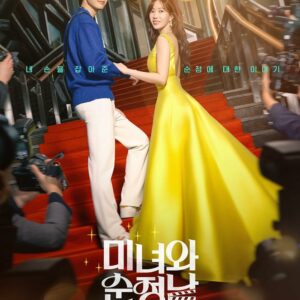
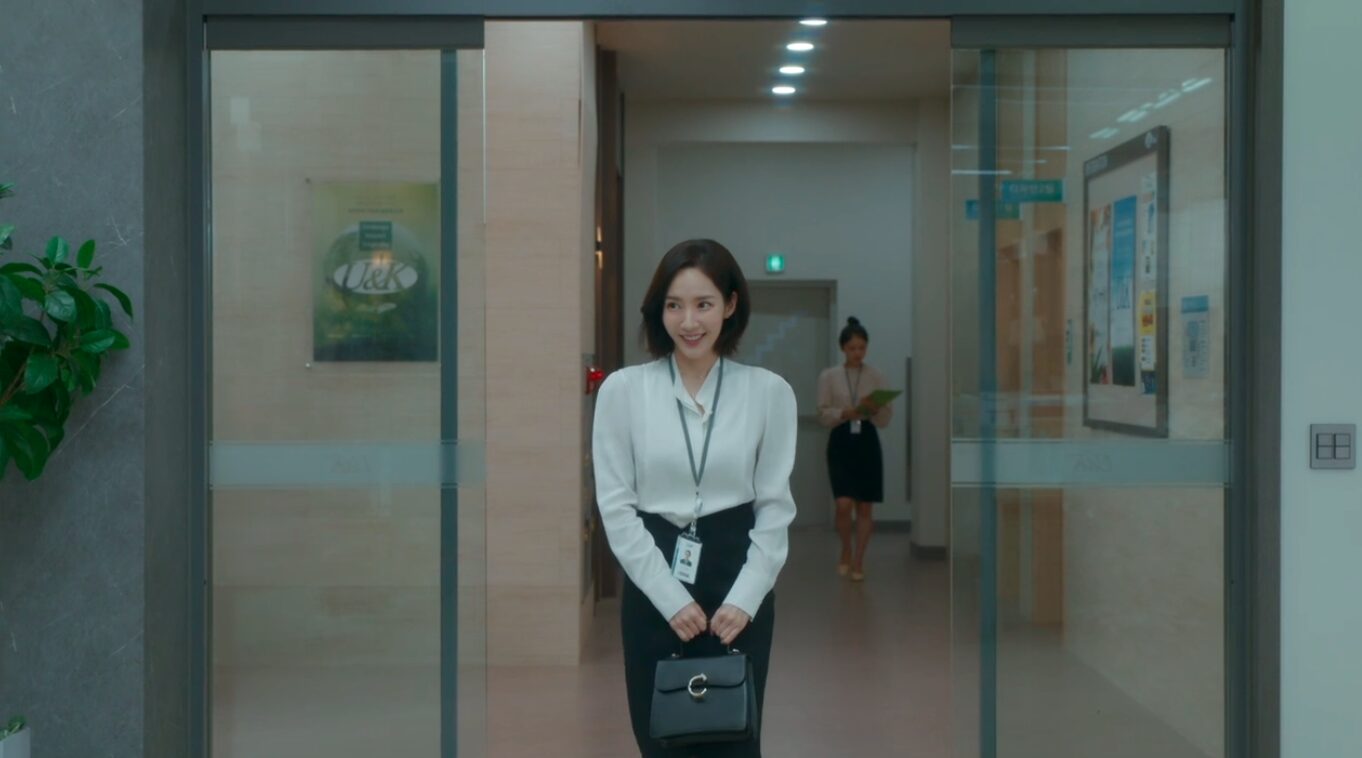
Thanks for the fantastic explanations of the show’s HUGE main flaws. I really hate it when people take on projects without seeing them through properly. And I hate it even more when people say “oh it’s only a k-drama, why be so serious”, which insults both k-drama makers and k-drama viewers.
Well LT, I dropped Alice after nine episodes. I couldn’t finish it. Unfortunately, I will continue to remember what I watched because it was that bad.
Very few sci-fi shows do alternate universes, time travel and villains on steroids all that well. Those that do, apart from “Dark” include “Fringe,” DS9 and “Stargate.”
One thing that kept running through my mind with a name like Alice when watching this Kdrama is “Alice’s Restaurant,” “Living Next Door to Alice,” and “Alice,” the American sitcom and film, based in a diner. Alice, the waitress had her own time travel experience when she said “So far this week I’ve been offered candy bars and nylons. What is this, World War 2?” 😂😂😂
Fortunately, “The Silent Sea,” despite what some have said re some elements, is an enjoyable sci-fi experience.
Ah, I remember when I was naive enough to believe that they were just teasing the incest (still gross) rather than actually going there.
Dark was a masterpiece.
tbh instead of dropping Alice at the ‘romcom incest’ portion, I just couldn’t believe what I was watching to the point where I stuck around in… shock basically.